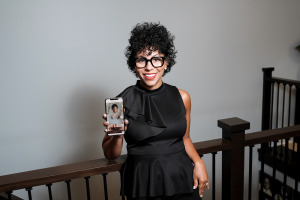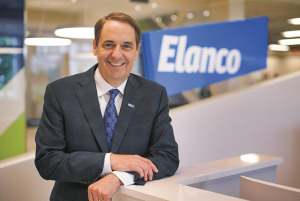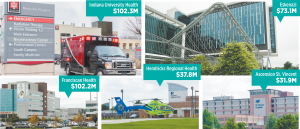
Groundbreaking well-being app targets Black women’s stressors
Entrepreneur Katara McCarty says the Exhale app she developed “speaks to the path of women of color.”

Entrepreneur Katara McCarty says the Exhale app she developed “speaks to the path of women of color.”
Lilly and partner Boehringer Ingelheim published results from a trial showing the drug cut the risk of cardiovascular hospitalizations or death by 25%, compared to placebo in heart failure patients.
Starting Monday, the state began including positive results from antigen tests along with its traditional PCR tests. That single move reduced the state’s testing-positivity rate—but some officials say the accuracy of antigen testing is still widely unknown.

Many health insurers are reporting second-quarter earnings double what they were a year ago, as Americans are putting off expensive surgeries and even routine office visits during the pandemic.
Advanced Penetration Technology LLC said London-based research laboratory Virology Research Services evaluated the anti-viral impact of the product and concluded it is a “highly effective formulation” against the coronavirus.
Dashboard users will be able to search specific long-term care facilities to see reported cases and deaths.
The availability of ICU beds has fallen in recent weeks as hospitals have deactivated hundreds of beds while the number of COVID-19 hospitalizations has climbed.

Now that the company has closed its $6.9 billion acquisition of the German conglomerate’s animal-health division, it must now swiftly and carefully integrate the two sprawling companies in the midst of a pandemic.

The expansion will add 44 acres to the campus., extending it from 16th Street south to 12th Street and from Capitol Avenue west to I-65.
Indiana’s weakest and often smallest hospitals, usually with just a few dozen beds, might be only months from beginning the process of shutting their doors, industry leaders say.
Almost a quarter of the nursing home deaths from COVID-19 in Indiana have occurred at facilities operated by Health and Hospital Corporation of Marion County. The facilities are managed by Indianapolis-based American Senior Communities.
In direct response to the high levels of stress and anxiety due to the pandemic, Indiana officials on Monday launched a crisis hotline, which will allow Hoosiers to speak confidentially with a trained counselor at any hour free of charge.

IBJ talked with Caine about her pandemic frustrations, how testing and contact-tracing are going and whether the Indianapolis 500 should run with fans in the stands.
The codes are critical to help track the virus by allowing health systems and public health officials around the world seamlessly exchange information.

Some are asking whether coronavirus aid funds are flowing to the neediest hospitals, or to those that already have deep financial resources, as the money is doled out to thousands of institutions nationwide.
The increase is hitting more young people. People under 30 now account for 22% of all who have tested positive for COVID-19 in Indiana, up from 15% just a few weeks ago.
In Touch Pharmaceuticals serves long-term-care facilities in Illinois, Indiana and Michigan. It credits its system for helping clients reduce medication errors, cut waste and reduce costs.
West Lafayette-based Bioanalytical Systems’ latest executive departure comes amid recent signs of stability, turnaround and growth for a company that just three years ago was on the verge of sinking.
Aarti Shah oversees Lilly’s global information technology, information security, advanced analytics and data sciences, and digital health.
The Hoosier state has 17,093 industry jobs spread out among 69 companies, from Indianapolis-based drugmaker Eli Lilly and Co. to startups scattered around the state, but mostly in clusters near research universities.